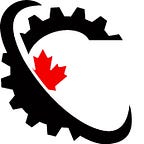What’s the difference between 3-Axis, 4-Axis and 5-Axis Machining
A fully equipped CNC machine shop will have a range of state-of-the-art 3-axis, 4-axis, and 5-axis milling machines. When designing a CNC machined part, you may not have thought about which type of machine your part will be machined on, but the complexity and type of geometry you can design will be different for different types of machines. As a designer, having an understanding of which type of machine your part will be manufactured on is critical in optimizing your design.
The main difference between 3-axis, 4-axis, and 5-axis machining is the complexity of the movement both the workpiece and the cutting tool can move through, relative to each other. The more complex the motion of the two parts, the more complex the geometry of the final machined part can be.
A review of the functionality of each machine will help in your understanding of the ability of the machine and how it affects your design process.
What is 3-Axis Machining?
The evolution of 3-axis milling began as the practice of rotary filing with teeth on a cog-wheel operating on two axes only to automate manual filing. Over many years it became the manual milling practice on three axes, the X, Y, and Z, we know today. In three-axis machining, the workpiece remains still while the cutting tool moves along the three axes to mill the part. These three axes include horizontal movement front to back, and side to side, and vertical movement up and down.
This is still one of the most widely used techniques to create mechanical parts and can be used for automatic/interactive operation, milling slots, drilling holes, and cutting sharp edges. Because 3-axis machining only operates on three axes, it’s a relatively simple process that serves a variety of single planar needs.
While it is a more basic machining process, 3-axis machining may be ideal for your machining project depending on the size of your production run, the workpiece requirements, accuracy and finish constraints, materials used, and your holding capabilities.
